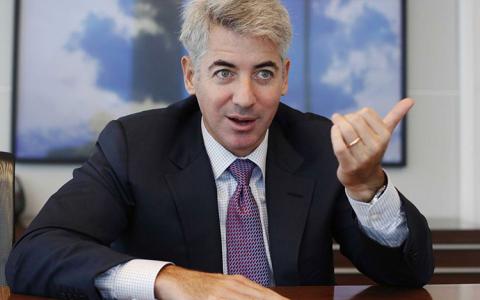
Billionaire Bill Ackman of hedge fund Pershing Square Capital Management has exited his firm’s about $1 billion position in Berkshire Hathaway, seeking higher returns as cash continues to swell at Warren Buffett’s investment conglomerate. Ackman’s sale means Pershing Square held Berkshire shares for roughly a year, thus the position wound up as just a quick trade in one of the world’s best performing companies over the past half-century.
On a conference call with investors Wednesday, Pershing Square revealed it sold its Berkshire Hathaway holdings as it tries to opportunistically invest in markets pummeled by the coronavirus pandemic. Pershing Square sale indicates it believes it can allocate capital faster and at higher returns in today’s volatile markets than Berkshire, which saw its cash balances swell to $130 billion in the first quarter.
“We think it's a very different environment than when we made the investment in Berkshire a year ago,” said partner Ryan Israel, who oversaw Pershing Square’s Berkshire investment, on the investor call. “We continue to think Berkshire will be a strong investment over the longer term, but we also think the current environment means there may be more than typical opportunities for us to see very high-returning investments,” added Israel. According to filings with the Securities and Exchange Commission, Pershing Square’s stock holding in Berkshire was worth about $1 billion at the end of March.
Pershing Square was complimentary of Warren Buffett’s conglomerate on the way out of the stock, telling shareholders in the hedge fund’s London-listed public vehicle Berkshire’s operating businesses and defensive positioning performed well through the Covid-19 disruption.
“[S]ince we made our investment in Berkshire, we think that the high-quality nature of its portfolio is really shown think it's done a good job expanding operating margins, particularly at its largest industrial asset, the Burlington Northern,” said Israel, “For example, if you look at the insurance business, float was able to grow to $130 billion, which has grown 5% last year and it's really incredible at the scale that Berkshire is dealing with.”
When it came to Berkshire’s capital allocation, Pershing Square said it could move money faster than Buffett and his lieutenant Charlie Munger. Israel noted that despite the pandemic and the litany of bargains abounding in March, Berkshire’s cash balance grew by $20 billion in the first quarter and now stands at one-third of its overall market value.
“[W]e still remain optimistic that over time, Berkshire will deploy its cash attractively,” said Israel. Instead of having Buffett and Munger find the investments at a massive scale using Berkshire’s gargantuan war chest, Israel said indicated Pershing Square would rather use the investment proceeds and do the work itself.
Added Ackman, “[T]he one advantage we have versus Berkshire is just relative scale. Berkshire has the problem, if you will, of deploying $130 billion of capital or some fraction of that number is still a very large number relative to the liquidity available in buying one equity at a time.”
At the March lows, Pershing Square famously took off a short Ackman had put on as the pandemic spread in China, making an about 100-fold return on the $27 million hedge. Pershing Square used $2.7 billion in proceeds from the hedge to rebuild a position in Starbucks SBUX, add to holdings in like Hilton and Lowe’s, and make opportunistic trades in firms like Blackstone BX.
As of this week, Pershing Square again began taking chips off the table. Including the leverage of its public vehicle, Pershing Square is between 85% and 98% invested for its funds and holding cash positions of between 15% and 20%.
This article originally appeared on Forbes.



